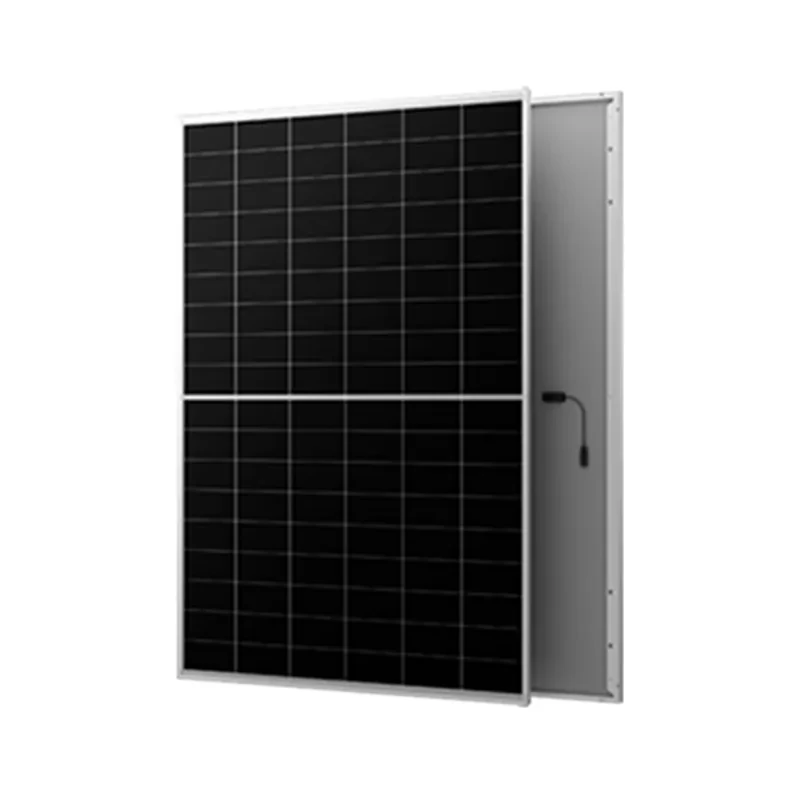120w solar panel output
Understanding the Output of a 120W Solar Panel
Solar energy has emerged as one of the most promising renewable energy sources in recent years, owing largely to its sustainability and minimal environmental impact. With an increasing number of households and businesses turning to solar power, it's essential to grasp the output and efficiency of different solar panel ratings, such as the commonly discussed 120W solar panel. In this article, we'll explore what a 120W solar panel can do, how it functions, and its potential applications.
What is a 120W Solar Panel?
A 120W solar panel is designed to generate a maximum power output of 120 watts under ideal conditions, usually referred to as Standard Test Conditions (STC), which include a solar irradiance of 1000 watts per square meter and a temperature of 25 degrees Celsius. The actual output may vary based on factors such as shading, ambient temperature, and the angle of sunlight. Understanding these variables is crucial for potential users and installers to accurately assess the panel's performance.
The Mechanics Behind Solar Power Generation
Solar panels, or photovoltaic (PV) panels, consist of solar cells made from semiconductor materials, typically silicon. When sunlight strikes these cells, it excites electrons, creating an electric current. In the case of a 120W solar panel, its design and efficiency ratings play a crucial role in determining how much solar energy it can convert into usable electricity.
Most 120W panels are monocrystalline or polycrystalline. Monocrystalline panels are generally more efficient, but polycrystalline panels usually come at a lower cost. The choice between these options can influence the overall power output, efficiency, and aesthetics of the installation.
Factors Influencing Solar Panel Output
1. Sunlight Exposure The amount of sunlight a solar panel receives directly influences its output. Panels installed in areas with higher solar irradiance—such as regions closer to the equator or in arid climates—generally perform better than those in cloudy or shaded areas.
2. Temperature While solar panels are designed to perform well under sunlight, excessive heat can reduce their efficiency. It’s crucial to consider ambient temperature as a high temperature can lead to a decrease in voltage and, subsequently, a drop in power output.
120w solar panel output

3. Installation Angle and Orientation The angle and direction in which a solar panel is installed can significantly impact its performance. Panels should ideally be oriented to face the sun directly for maximum exposure, and the angle can be adjusted based on the geographic location and seasonal variations.
4. Maintenance and Cleanliness Dust, dirt, and debris can accumulate on solar panel surfaces, obstructing sunlight and reducing efficiency. Routine cleaning and maintenance periods are essential to ensure optimal energy production.
Applications of a 120W Solar Panel
The versatility of a 120W solar panel makes it applicable in various scenarios
- Residential Use Homeowners can use 120W panels for small-scale energy needs, such as charging batteries for appliances, outdoor lighting, or power tools. Multiple panels can be installed to meet larger energy demands.
- Mobile and Off-Grid Solutions Given their compact size and manageable weight, 120W panels are excellent for RVs, boats, or tiny homes, providing a vital power source for peace of mind during travels.
- Remote Monitoring Stations For agricultural or environmental monitoring equipment located in remote areas, a 120W solar panel can power sensors and communication devices, eliminating the need for grid power.
- Emergency Backup Systems In scenarios where reliable grid access is a concern, a setup with a 120W solar panel can serve as a reliable backup during outages, providing essential power for communication devices or minimal lighting.
Conclusion
A 120W solar panel is a practical option for those exploring solar energy for their homes, hobbies, or small-scale applications. Understanding its output and the factors affecting performance can lead to effective and efficient use of solar technology. As advancements in solar panel technology continue to evolve, investing in solar energy solutions, such as 120W panels, remains an important step toward achieving energy independence and promoting a sustainable future.
-
Unlocking Energy Freedom with the Off Grid Solar InverterNewsJun.06,2025
-
Unlock More Solar Power with a High-Efficiency Bifacial Solar PanelNewsJun.06,2025
-
Power Your Future with High-Efficiency Monocrystalline Solar PanelsNewsJun.06,2025
-
Next-Gen Solar Power Starts with Micro Solar InvertersNewsJun.06,2025
-
Harnessing Peak Efficiency with the On Grid Solar InverterNewsJun.06,2025
-
Discover Unmatched Efficiency with the Latest String Solar InverterNewsJun.06,2025







